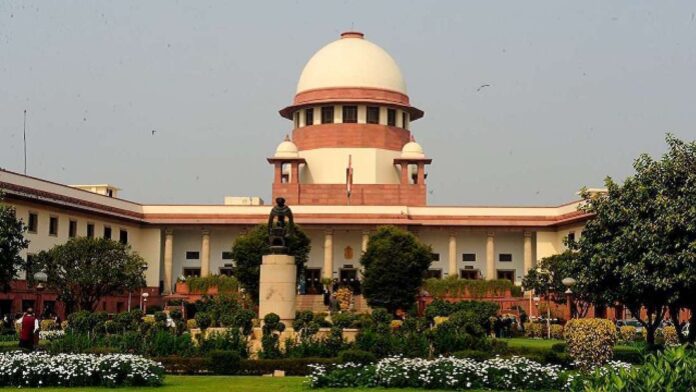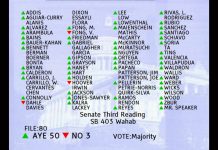Nearly nine decades after the 1932 Poona pact between B.R. Ambedkar and Mahatma Gandhi that initiated reservation for backward classes, the debate on social justice is only getting shriller. In the latest, a February 7 Supreme Court order that states that reservation is not a fundamental right have sparked an intense political debate and disquiet amongst backward communities.
The top court has ruled that there is no fundamental right to reservation in appointments and promotions in public services under Articles 16(4) and 16(4A) of the Constitution. It added that it was the discretion of the governments, either at the state or Centre, to grant reservation in promotions. Constitutional expert Faizan Mustafa says it is a letdown for depressed classes. “The SC judgment is disappointing as the court has overlooked judgment of the larger benches on the relationship of Article 16(1) with that of Article 16(4). Article 16 (1) talks of right to equal opportunities in jobs and prohibits discrimination only on the basis of religion, race, caste, sex, place of birth, residence, and descent. Article 16(4) says that nothing shall prevent the state from making reservation in favor of any backward class,” he says.
The case pertains to a decision by the Uttarakhand government in 2012 when the ruling Congress filled government posts without giving reservation to scheduled caste (SC) and scheduled tribe (ST) communities. The latest ruling says that this provision is merely enabling; states may or may not make a reservation.
“The court no more regards the provision in Clause 4 as an exception, treating this as an extension of Clause (1) and technically this is the correct interpretation as equality of Clause(1) is not enough to have a level playing field for the underprivileged. People historically oppressed and excluded needs a special push,” adds Mustafa.
With most Opposition parties using the SC order to attack the BJP, the party can ill afford to ignore the issue. NDA partners like Lok Janshakti Party (LJP) and Republic Party of India (RPI) have been vociferously demanding that the government files a review petition against the order.
Speaking to Outlook, Union minister of state for social justice and empowerment, Ramdas Athawale, says he’s in favour of a review petition. “Our demand is that reservation provisions should be included in the Ninth Schedule of the Constitution so that the rights of the depressed community are safeguarded. I hope government passes a law in the next Parliament session,” says Athawale. With Bihar assembly elections round the corner, the BJP government won’t be able to ignore these noises anymore.
The Congress terms the court order as an endorsement of RSS plans to end reservation. “Why there are only Brahmin leaders in the RSS? If they want to abolish reservation, let them first throw the caste system out,” says Congress leader Udit Raj.
In this highly polarised debate, the original purpose of affirmative action is mostly lost. While courts rule that the inadequacy of representation is a subjective matter of states, the empirical data paints a gloomy picture.
According to the Union government, of the 89 secretary-level officers on its rolls, only four were from the SC/ST community. Out of 93 additional secretaries, only 11 were; there are no OBCs of this rank.
Surinder S. Jodhka, the author of Caste in Contemporary India, contradicts the critics of reservation on the vexed question of merit. A professor of sociology at JNU, he says that reservation is meant to facilitate mobility and has helped backward communities to articulate their position in society. “It’s a biased argument. The question of merit should be applied to everyone once they are in the system. We can’t put the burden of development on people on the margins. The leadership is still with the upper caste and they control 80 percent of the system,” he says.
In the post-Mandal scenario, the new politics of social justice is manoeuvered by electoral calculations, say experts. With politicians using reservation as a convenient tool, more socially dominant forces vie for a pie in the quota system. In states like Maharashtra, Rajasthan, Haryana, and Gujarat, the discourse is veering towards reservation based on economic rather than social backwardness.
“There are hundreds of other safeguards for economic uplift. Reservation is for the representation of the backward community,” says Udit Raj.
Meanwhile, calls for reform and rethinking reservation policies get louder. One question is whether there’s a need to continue with reservation and if benefits have reached targets. Debates on extending reservations to the private sector and the exclusion of the creamy layer of SCs/STs are also being widely discussed.
“We need to do constant surveys on the impact of reservation. We need potential intervention at the policy level,” says Jodhka.
Though RSS chief Mohan Bhagwat and other leaders have demanded a review of reservation, former ideologue K. Govindacharya says that reservation should continue, with due accounting for the creamy layer. “Caste is a reality and it cannot be ignored. Discrimination exists because of the caste factor. However, I feel that there should be an economic rider,” he tells Outlook.
However, Bhim Army leader Kush Ambedkarwadi says the creamy layer among SCs/STs is a creation by upper castes and the recent SC order is a politically motivated one. “RSS and BJP want to end reservation. But they are diluting it systematically by court orders. If the reservation was properly implemented, we would have benefited,” he says. The party has called for a nation-wide shut down on February 23 against the SC order. He says the government will have to intervene—like it did when the top court diluted the SC and ST (Prevention of Atrocities) Act. After mass protests rocked the country, the government rolled it back.
Original Source: Click Here




